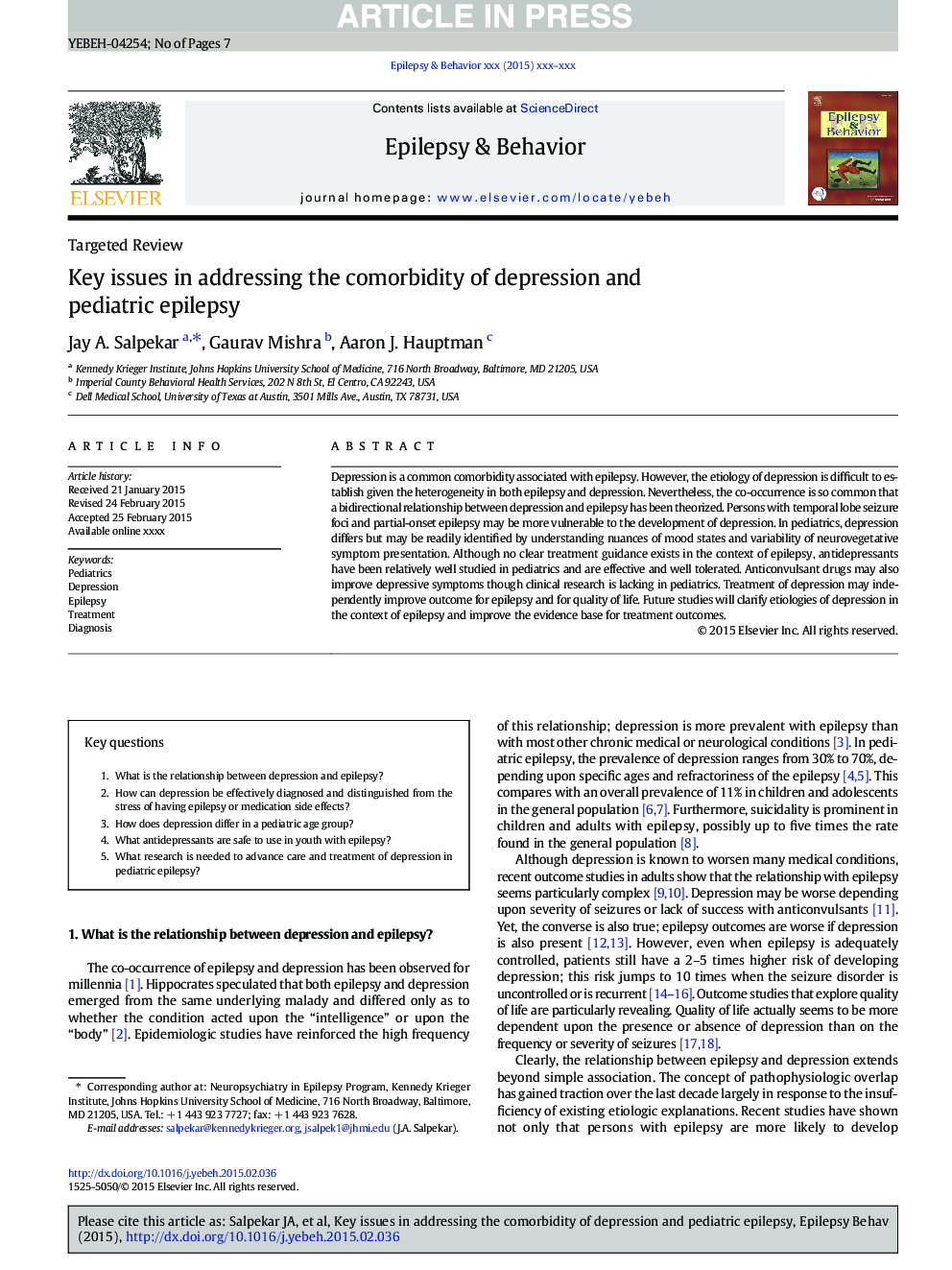| Article ID | Journal | Published Year | Pages | File Type |
|---|---|---|---|---|
| 6010878 | Epilepsy & Behavior | 2015 | 7 Pages |
Abstract
Depression is a common comorbidity associated with epilepsy. However, the etiology of depression is difficult to establish given the heterogeneity in both epilepsy and depression. Nevertheless, the co-occurrence is so common that a bidirectional relationship between depression and epilepsy has been theorized. Persons with temporal lobe seizure foci and partial-onset epilepsy may be more vulnerable to the development of depression. In pediatrics, depression differs but may be readily identified by understanding nuances of mood states and variability of neurovegetative symptom presentation. Although no clear treatment guidance exists in the context of epilepsy, antidepressants have been relatively well studied in pediatrics and are effective and well tolerated. Anticonvulsant drugs may also improve depressive symptoms though clinical research is lacking in pediatrics. Treatment of depression may independently improve outcome for epilepsy and for quality of life. Future studies will clarify etiologies of depression in the context of epilepsy and improve the evidence base for treatment outcomes.
Related Topics
Life Sciences
Neuroscience
Behavioral Neuroscience
Authors
Jay A. Salpekar, Gaurav Mishra, Aaron J. Hauptman,
